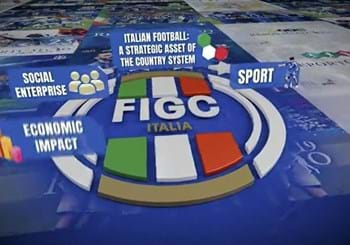
Gravina re-elected as FIGC President with 98.7% of the votes
Gravina: “I want to promote unity and make changes, football is good for Italy”Monday, February 3, 2025
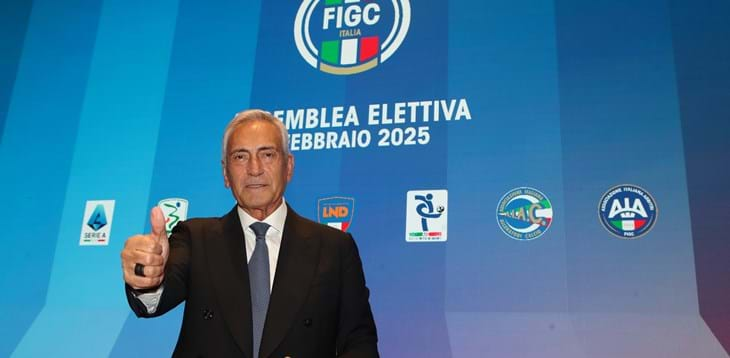
Gabriele Gravina will continue to lead the FIGC until 2028. The sole candidate, he was re-elected today at the first ballot with 98.7% of the votes (481,084 votes out of 487,500). First elected on 22 October 2018, Gravina is now set to begin his third term after previously securing re-election on 22 February 2021. For Gravina, it is "Full Sail Ahead", the title of the programme platform accompanying his candidacy, which was endorsed by Lega Serie B, Lega Pro, the LND, the AIC and the AIAC.
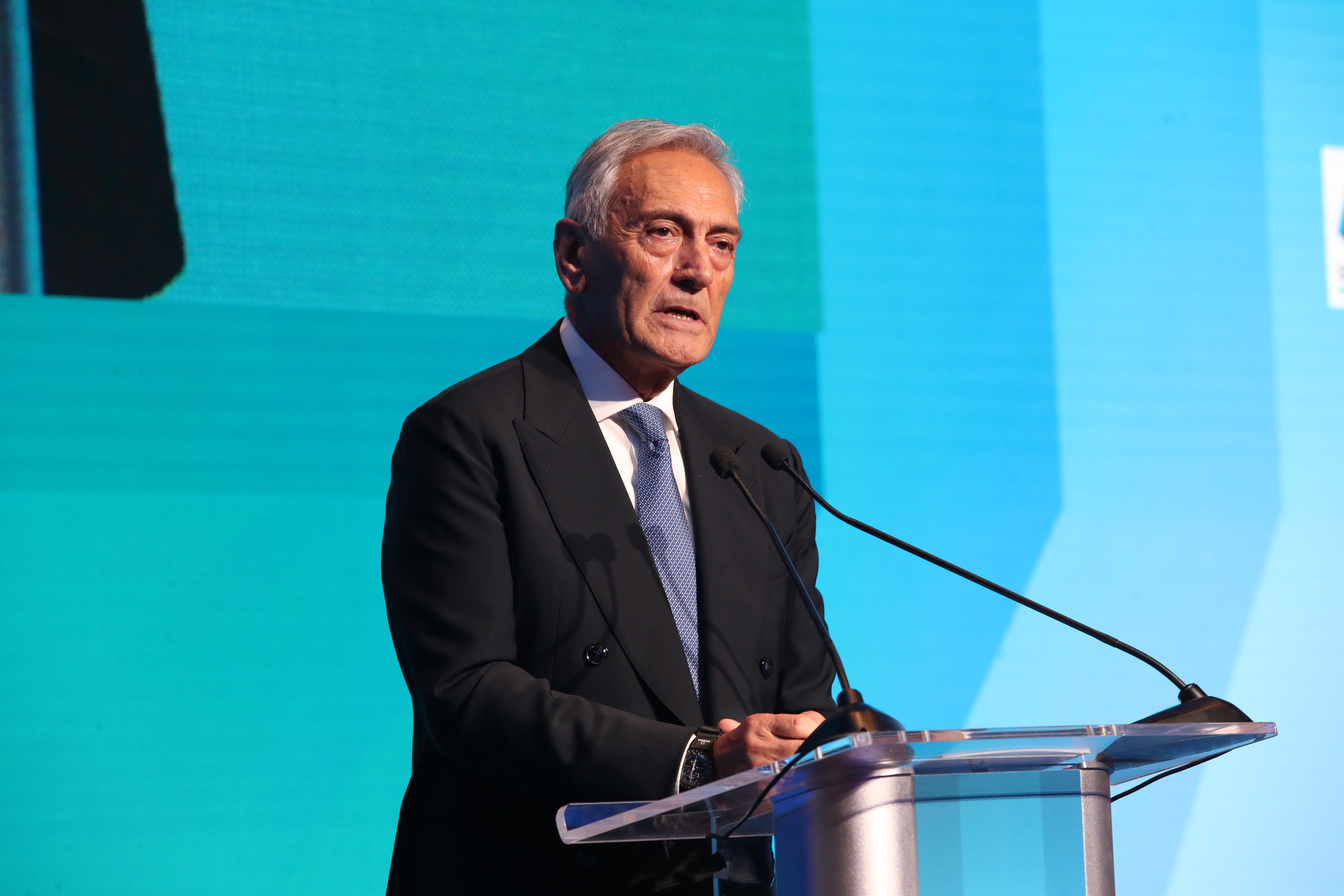
“Thank you so much,” said Gravina. “It is a great honour and a great source of pride for me. Now, we just need to turn our vision into a promise of victory. We must continue our journey and achieve all the goals that ‘calcio’ truly needs. I’ll close with a quote from Henry Ford: ‘Coming together is the beginning. Keeping together is progress. Working together is success’.”
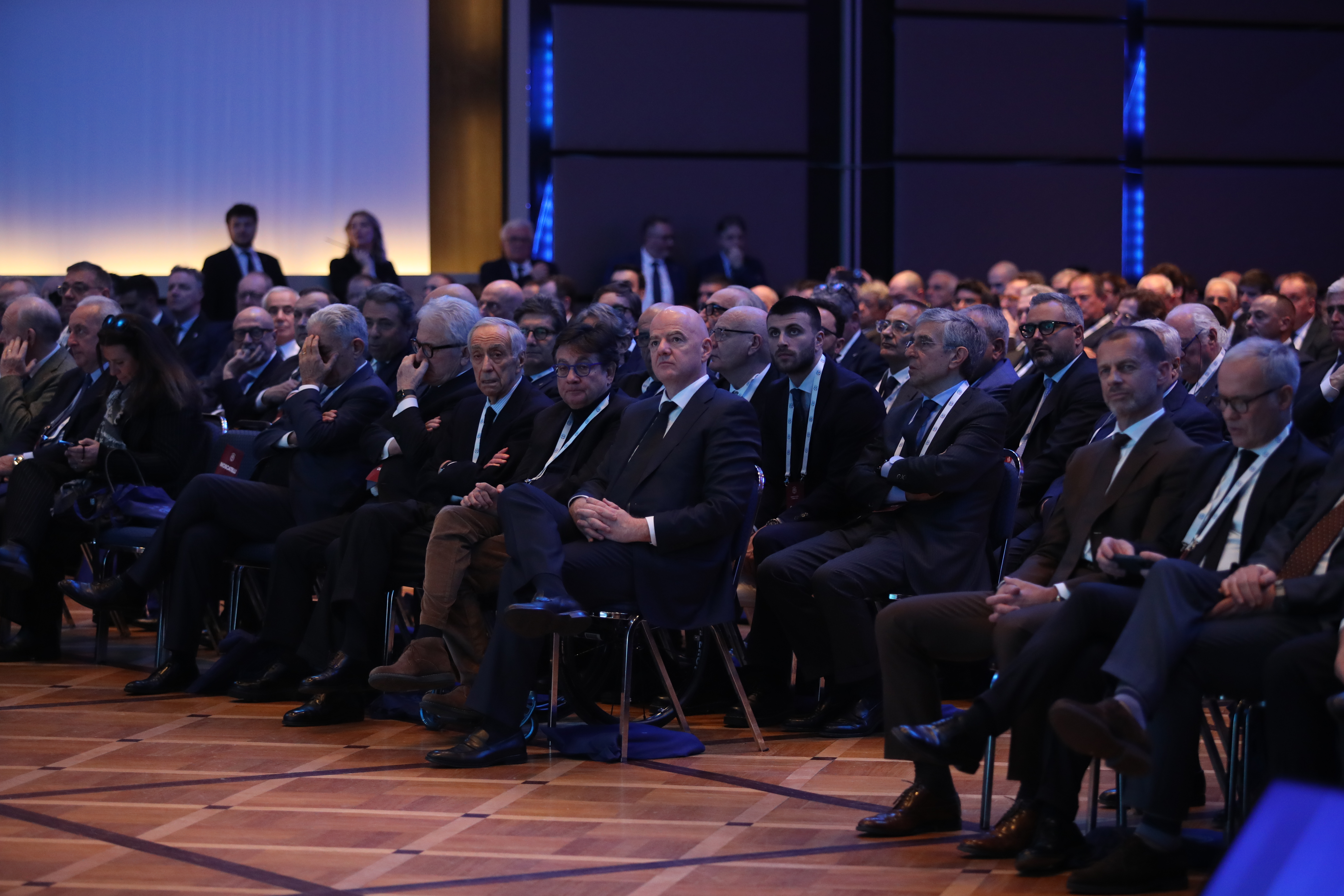
In his speech before the election, Gravina emphasised that he still had the same enthusiasm as on the first day, reiterating that he only decided to run after receiving confirmation of broad support for his candidacy: “I ask for the privilege of your trust to do two things: promote unity and make changes. I have been part of this world for 40 years and experienced defeats and victories, and I have never stopped considering football the most rewarding pursuit I know. Football is good for Italy: let’s continue to demonstrate that this is the case with passion!”
There were many noteworthy achievements in his first six years as president, and not just those accomplished ‘on the pitch’, where the Azzurri won EURO 2020 and the U19s and U17s triumphed in their respective European Championships, allowing the FIGC to win the Maurice Burlaz Trophy for the first time in history. Other “reasons to be satisfied” included saving the system’s economy during the pandemic, promoting transparency and efficiency despite a structural framework with delays, and working as a team to “overcome misunderstandings and counter attacks, lies, traps and slanders.”
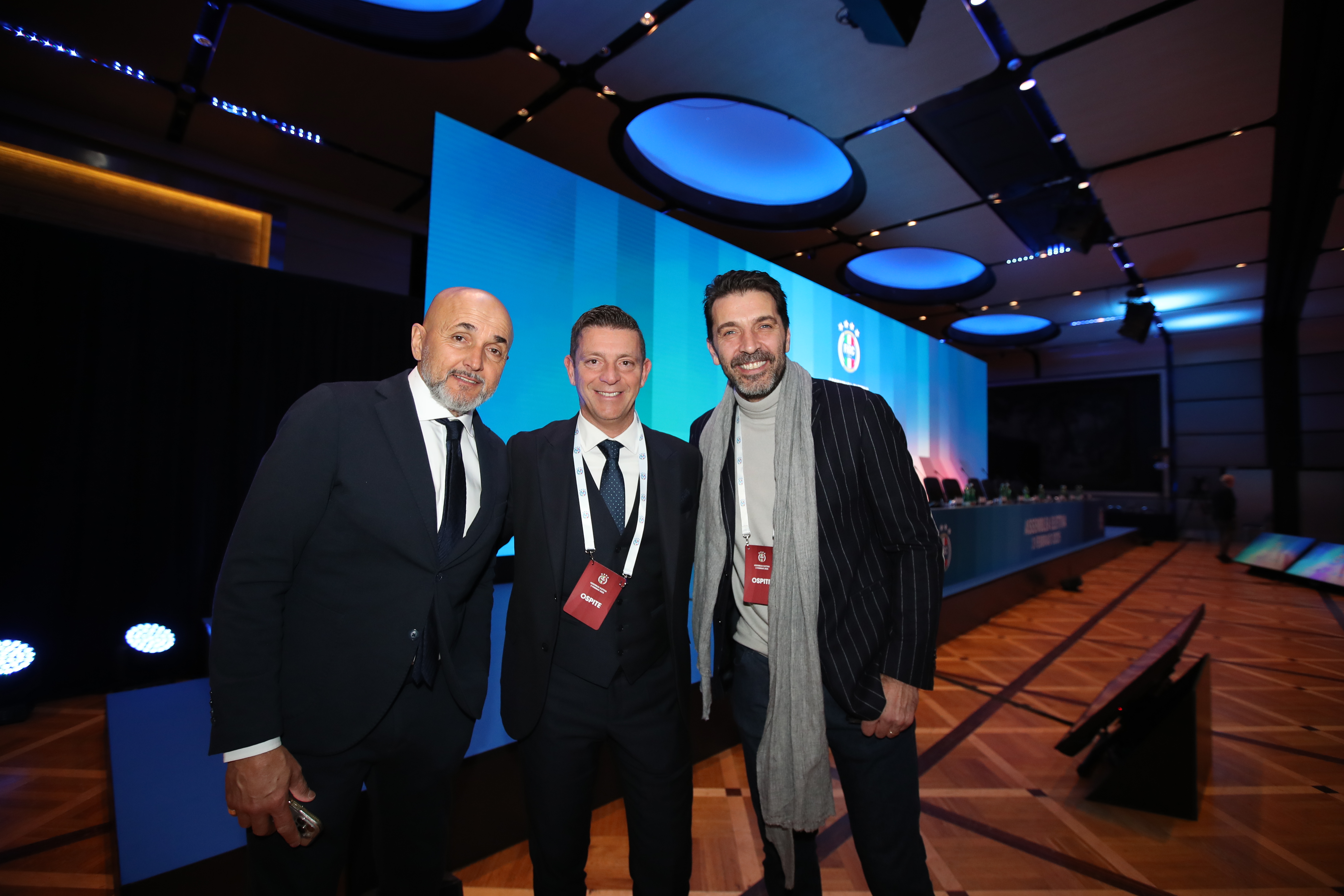
Looking ahead, there is a reform process to complete: “No great idea can be effective without the contribution of everyone. Open dialogue and mutual listening will continue to be our principles. Together, we will continue to make changes. We want our football to be efficient and sustainable, youthful and inclusive and a reference point culturally. These commitments are not just slogans, but concrete pillars of two documents called the ‘strategic plan’ and the ‘industrial plan’. This strategy is characterised by various measures: restructuring the federal organisation, implementing new economic and financial criteria for the admission of clubs to professional leagues, optimising Second Teams projects in professional clubs, creating the Under-23 federal academy, supporting the construction or renovation of five stadiums to be presented to UEFA for EURO 2032, promoting Italian football abroad in collaboration with the Ministry of Foreign Affairs, developing Vivo Azzurro TV for communication and ‘Sostenabilia’ for social and environmental sustainability activities, completing our cybersecurity plan, revisiting and improving the Youth and School Sector, strengthening the fundamental role of the so-called ‘one-stop shop’ with the LND, developing women’s football by transforming Serie A into an autonomous league, as well as restructuring the amateur football sector, fostering investments in youth sectors, pursuing managerial autonomy for the AIA, and providing video support for the Women’s Serie A and Serie D and in Futsal. This is what football must do on its own, but there are urgent reforms that require the Government and Parliament, and we need to make our voice heard loud and clear here.”
THE ASSEMBLY. At the Rome Cavalieri Waldorf Astoria, the Assembly, chaired by the president of the Federal Court of Appeal, Mario Luigi Torsello, was attended by the presidents of FIFA and UEFA, Gianni Infantino and Aleksander Ceferin. Joining UEFA Vice President, Zbigniew Boniek, and UEFA Deputy General Secretary, Giorgio Marchetti, in the front row were the presidents of the Albanian Football Federation, Armand Duka, the Ukrainian Football Association, Andriy Shevchenko, the Football Association of Montenegro, Dejan Savicevic, the San Marino Football Federation, Marco Tura, and the Malta Football Association, Bjorn Vassallo.
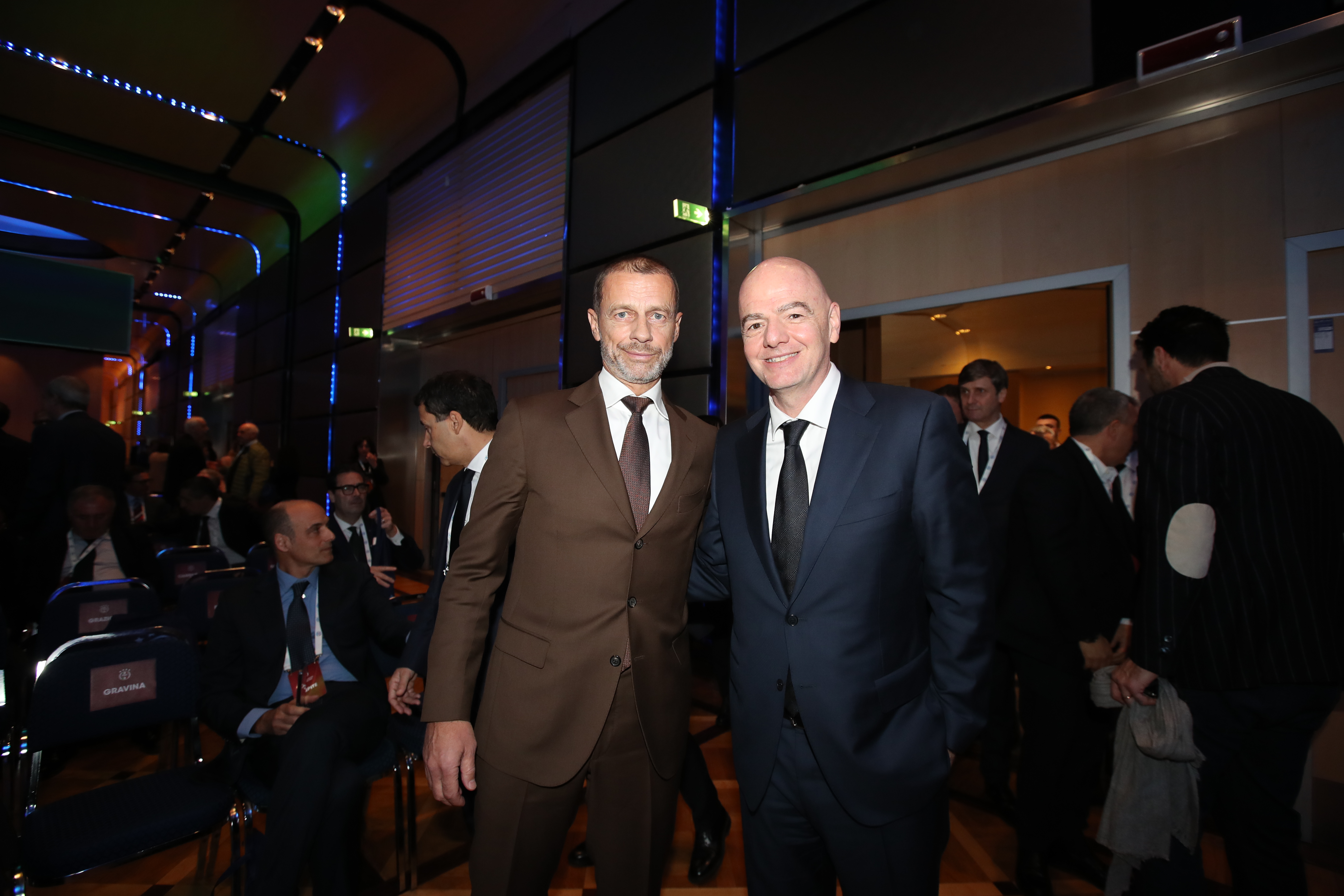
Before the vote, which also saw the re-election of Luca Galea as president of the Board of Auditors, the floor was given to the presidents of the different components: Ezio Simonelli (Lega Serie A), Paolo Bedin (Lega Serie B), Matteo Marani (Lega Pro), Giancarlo Abete (LND), Umberto Calcagno (AIC), Renzo Ulivieri (AIAC), and Antonio Zappi (AIA). It was President Torsello’s task to list the elected federal councillors: Francesco Calvo, Stefano Campoccia and Giuseppe Marotta for Serie A; Giovanni Carnevali for Serie B; Daniele Sebastiani for Lega Pro; Ilaria Bazzerla, Giacomo Fantazzini, Daniele Ortolano, Sergio Pedrazzini and Giuliana Tambaro for the National Amateur League. Representing the athletes were Valerio Bernardi, Davide Biondini, Umberto Calcagno and Sara Gama, while Giancarlo Camolese and Silvia Citta were present on behalf of the coaches. The presidents of the Leagues are automatically included in the Council.









